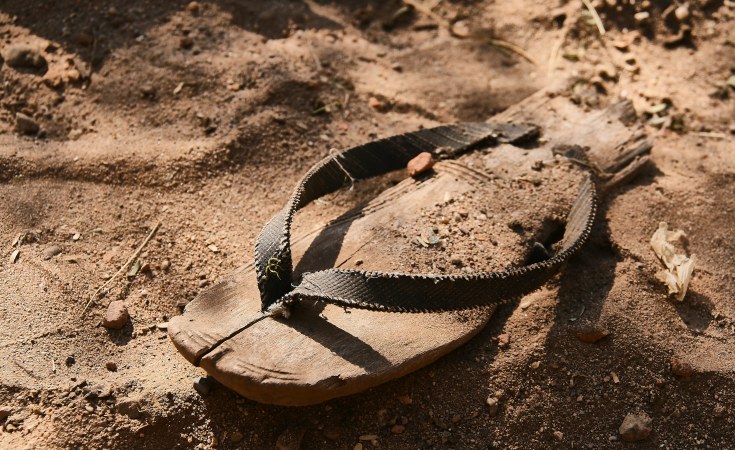Nigeria is grappling with a resurgence in kidnappings after a monthslong lull. Analysts blame the end of a cash shortage which was linked to the introduction of newly-designed naira notes in the West African nation.
The Central Bank of Nigeria's (CBN) chaotic introduction of new naira bills caused a three-month cash crunch in Africa's most-populous country.
To help business and households access cash, the CBN allowed older naira bills to remain in circulation across Nigeria until the end of 2023. But the steady supply of cash appears to have triggered a spike in kidnappings.
In early April, gunmen abducted at least 80 people, mostly women and children, in Nigeria's northern Zamfara state, a hotspot for kidnappings for ransom by armed gangs targeting remote villages.
Last week, seven people were killed and 22 others kidnapped in two separate attacks in northeast Nigeria's Borno State where jihadist groups operate, security sources and residents said on Saturday. Islamic State West Africa Province (ISWAP) jihadists are suspected of being involved.
And on Sunday, Nigerian police said they had rescued 58 people held hostage by criminal gangs in central Kogi state.
A police spokeswoman said the rescue was a joint operation with local volunteer defense groups which was carried out in Udulu Forest.
Did the cash crunch slow down abductions?
In recent years, kidnapping as a 'business' has exploded in Nigeria, where local gangs and armed insurgent groups -- such as Boko Haram and ISWAP -- are active in remote areas.
Kidnappers often keep their victims hostage for months if a ransom is not paid. They also demand villagers pay so-called protection fees to be allowed to farm and harvest their crops.
The abductors usually receive ransom payments in cash, which is then used to fund further operations.
Many commentators have suggested that the introduction of traceable, cashless transactions across Nigeria might help thwart the abductors.
Paul Samuel, an Abuja-based cybercrime expert, believes now that the Central Bank is releasing more banknotes into circulation, the kidnappers' means of accessing cash is easier.
"During the introduction of the cashless policy, there were no cases again," Samuel told DW. "They ceased operations. It helped reduce the case of household burglary, reduced banditry on the highway."
"People traveled freely without fear of being kidnapped because if kidnappers kidnapped a human being where will they get the ransom from?," he added. "You could not withdraw more than 20,000 naira (around Ꞓ39) from the counter. And kidnappers can never collect transfer because they know it will be traceable."
That said, it is estimated that there have already been hundreds of kidnapping victims in Nigeria in 2023 alone.
Would a cashless system help?
Nigeria did introduce a domestic AfriGo card in January, a scheme that is owned by the CBN and other Nigerian banks.
Another CBN policy, Cash-less Nigeria, seeks to discourage large amounts of cash entering circulation by putting a fee on withdrawals exceeding 500,000 Nigerian naira (Ꞓ983) for individuals and 3,000,000 naira for businesses.
A staffer at the Nigerian National Assembly, Ademola Taofik Adewale, told DW that the cashless policy had problems at first, but should be reconsidered.
"Policies and laws are meant to make citizens feel comfortable but when they are not properly implemented it will bring chaos the way we have it now," Adewale said, adding that the incoming government should remove "all the chaff and make sure the main grains meant for consumption are well refined."
Yet on the streets of Abuja, opinion is divided over the cashless policy. Some are not convinced that a cashless policy will actually reduce abductions -- and say that kidnappers will simply change tactics.
"There were reports that the economy contracted, and businesses collapsed," said Stella Iyaji. "Those people could even join the number of armed robbers and bandits."
"As policies were being introduced those criminals had to go back to the drawing board and they still did what they did," said Daniel Menson. "Our security agencies need to work and see how we could make things better."
Meanwhile, the CBN's governor, Godwin Emefiele, acknowledged that there were problems with implementing a cashless system in Africa's biggest economy of 200 million people, saying that many Nigerians were hesitant to adopt the policy or were excluded, because they were not part of the banking system.
"This [cashless] policy goes to reduce the problems of corruption and illicit financial flux. This policy goes to resolve some of the problems in the economy. This policy also goes to reduce the problem of insecurity in the country," he told DW.
"I can assure Nigerians that the long run benefits to Nigerian is overwhelming, and we should just give it a chance to work," Emefiele said.
Additional reporting from Ben Shemang in Abuja, Nigeria.
Edited by: Keith Walker


